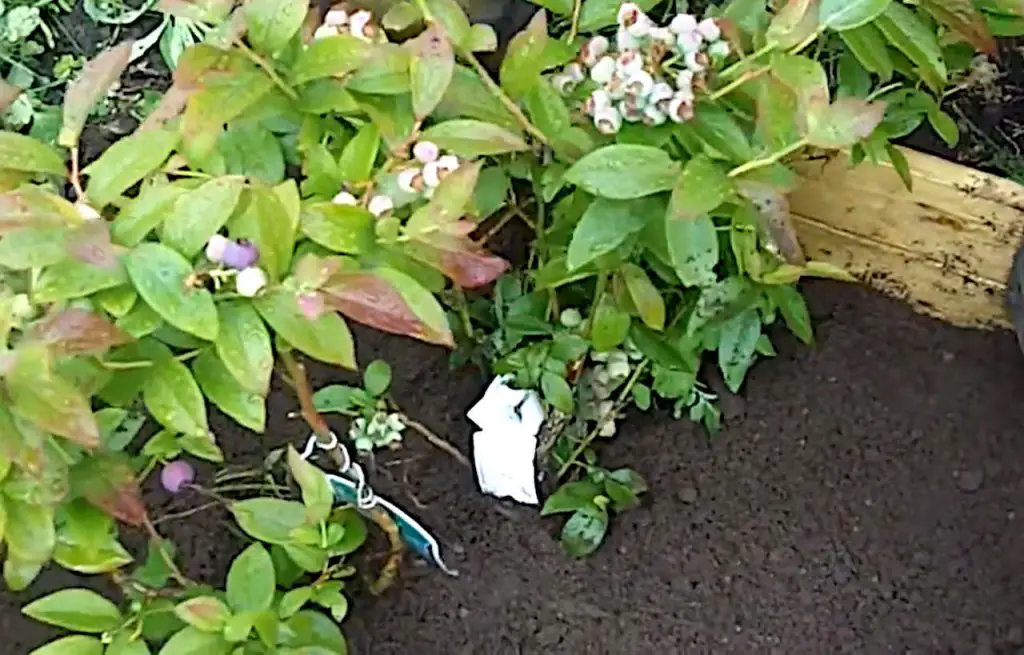A Guide to Ericaceous Compost | How to Make and Use It.
Ericaceous compost is a compost specifically developed to be acidic in nature (have a pH level below 7) with most commercially available ericaceous composts having acidity levels of around pH.
Ericaceous compost is used predominantly to encourage and help ericaceous plants, calcifuges, and other acidic loving plants grow and prosper. It is needed as these types of plants struggle when the soil they are planted in is alkali, chalky and rich in lime, or even is neutral in nature.
What is acidic soil and why you might need it?
Soil acidity is a measure of the level of hydrogen ions in the soil solution. It is measured on a scale called the pH scale, which runs from 0 to 14. The pH scale is logarithmic, which means that each step on the scale is ten times the previous one. For example, a pH of 5 is ten times more acidic than a pH of 6. The pH scale also goes from acid to alkaline, with 0 being the most acidic and 14 being the most alkaline.
The pH of the soil is affected by various factors. The type of soil, the nutrients it contains, and the level of organic matter in the soil all influence its pH. The pH of the soil is important because it affects the availability of nutrients to plants.
Acidic soils can make nutrients such as nitrogen, potassium, phosphorus, iron, and manganese more available to plants. However, soils that are too acidic can become toxic and choke a plants growth so there is a balance that needs to be maintained and is likely to be different for different types of plants.
What is Ericaceous Compost?
Ericaceous compost is a soil conditioner that improves the acidity of garden soil. Soils usually become acidic as a result of repeated additions of compost, manure, or peat.
How to make ericaceous compost?

Ericaceous compost is a high acidity compost that is devoid of any lime. It is not suitable for all plants, since some plants are unable to withstand the acidic breakdown.
This kind of compost was traditionally made by adding peat, although it may also be mixed with bark.
Today there are several ways in which you can make acidic compost. One way is to use acid materials during the composting process. With this method though you have to be careful that you don’t make the composting pile too acidic as this can slow down or bring the decomposition process to a halt.
To make your composting pile acidic you need to manage the materials that you include. Materials that have high acidic values include:
- Beech and Oak leaves
- Conifer ferns
- Pine needles,
- Onions,
- Vinegar,
- Citrus fruits,
- Bark and wood chips
Because this process is deliberately trying to raise the acid content of your composting pile it is, therefore, something that you cannot do if you are vermicomposting as an overly acidic composting pile will likely kill the worms.
Another issue to bear in mind is that preparing a composting pile that is acidic in nature to produce ericaceous compost can cause the pile to stench.
If you start to notice that the decomposition process has slowed down or stopped it is because you have made the pile too acidic. You should regularly check the acidity of the pile with a pH soil testing kit making sure that it remains around pH5 and below this (making it more acidic) you will run into problems.
If your compost pile has stopped decomposing because it is too acidic you can rectify the situation by adding in lime to rebalance the pH levels.
Turning finished compost into ericaceous compost
Another, perhaps a better option, is to turn finished compost into ericaceous compost. You can do this by either using store (commercially bought) regular compost or your own compost. You might hear some objections to this in that you should buy ready-made ericaceous compost but the truth is this is often an overpriced solution to something you can do with ingredients that you have lying around.
Finished compost itself acts as a great activator for composting piles so you can add some of the materials listed above to make it acidic.
The best options are pine needles, conifer leaves, or vinegar. All of these will turn the finished compost acidic. You still have to be careful and measure the acidity level, and make sure that it is around pH5.
Why is Ericaceous Compost useful?
Alkali soils can make important plant nutrients less available to plants. By using ericaceous compost
Ericaceous compost contains organic matter, which is broken down by soil organisms into nutrients that are slowly released. It also prevents nutrients such as nitrogen, potassium, phosphorus, iron, and manganese from being washed away by making them less soluble.
Ericaceous compost helps the soil release these nutrients more slowly, allowing them to be absorbed by plant roots over a much longer period of time, keeping plants healthy and strong.
When to Use Ericaceous Compost?
Ericaceous compost can be used to improve the acidity of all types of soil, including light, heavy, clay or sandy soil. It can be used in containers, on raised beds, or in the ground. Ericaceous compost can also be used as mulch under acid-loving plants.
How to Use Ericaceous Compost?
Ericaceous compost may be used to gradually change the pH of neutral soil, restore acidic soil, or in pots and planters for ericaceous plants. It is important to adjust your use to your existing soil conditions, assessing the soil type of soil, the current pH of your level soil, and growing conditions.
Ericaceous compost can be used to improve soil fertility and texture. Apply at a rate of 20-40 liters per square meter and mix into the top 5-10 cm of soil.
Ericaceous compost can be used to improve the acidity of most types of soil. However, ericaceous compost should be used sparingly, as adding too much can cause nutrient deficiencies. It should not be used on soils that are already acidic without carefully monitoring the pH level of the soil to prevent it from becoming too acidic.
